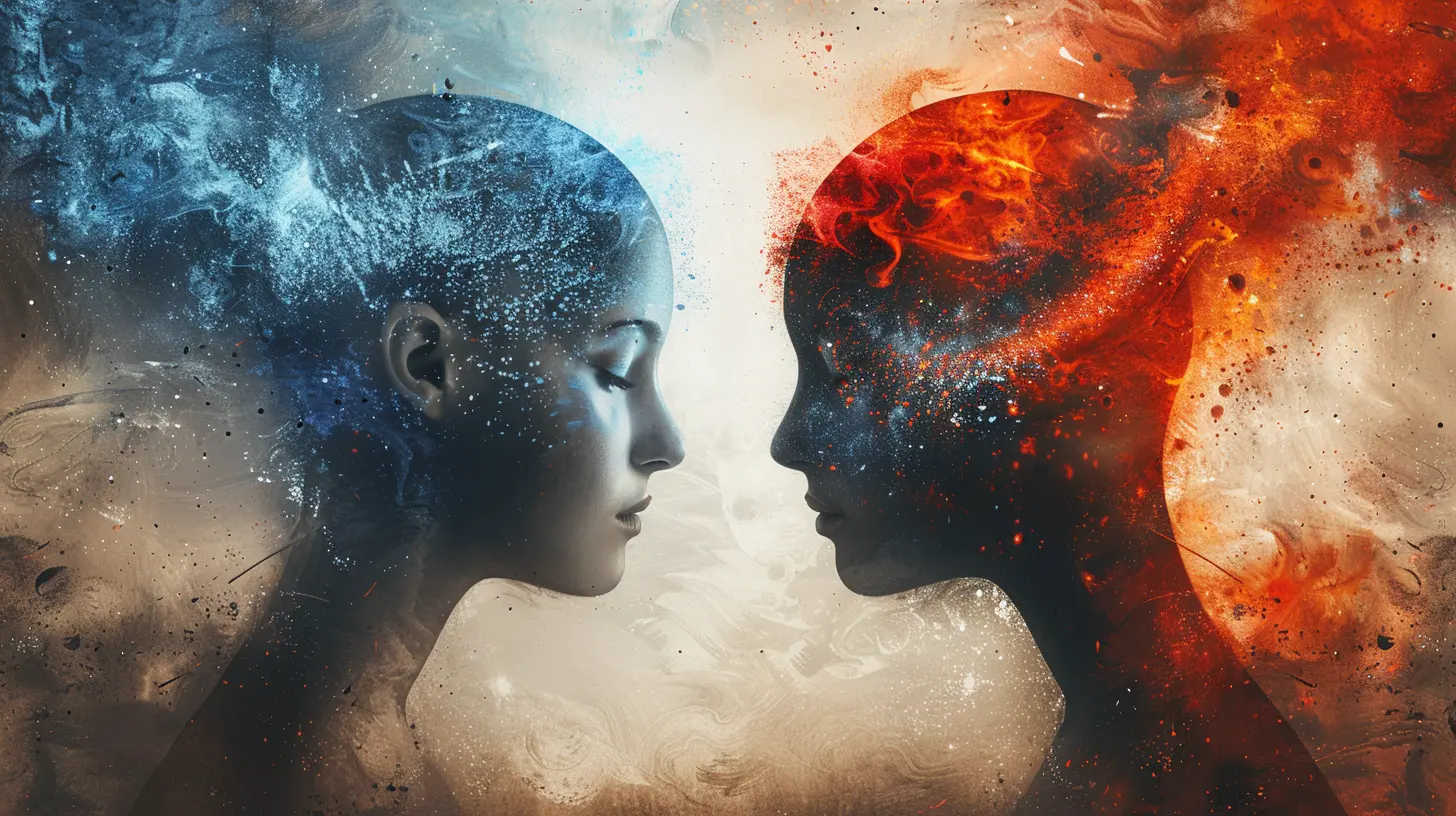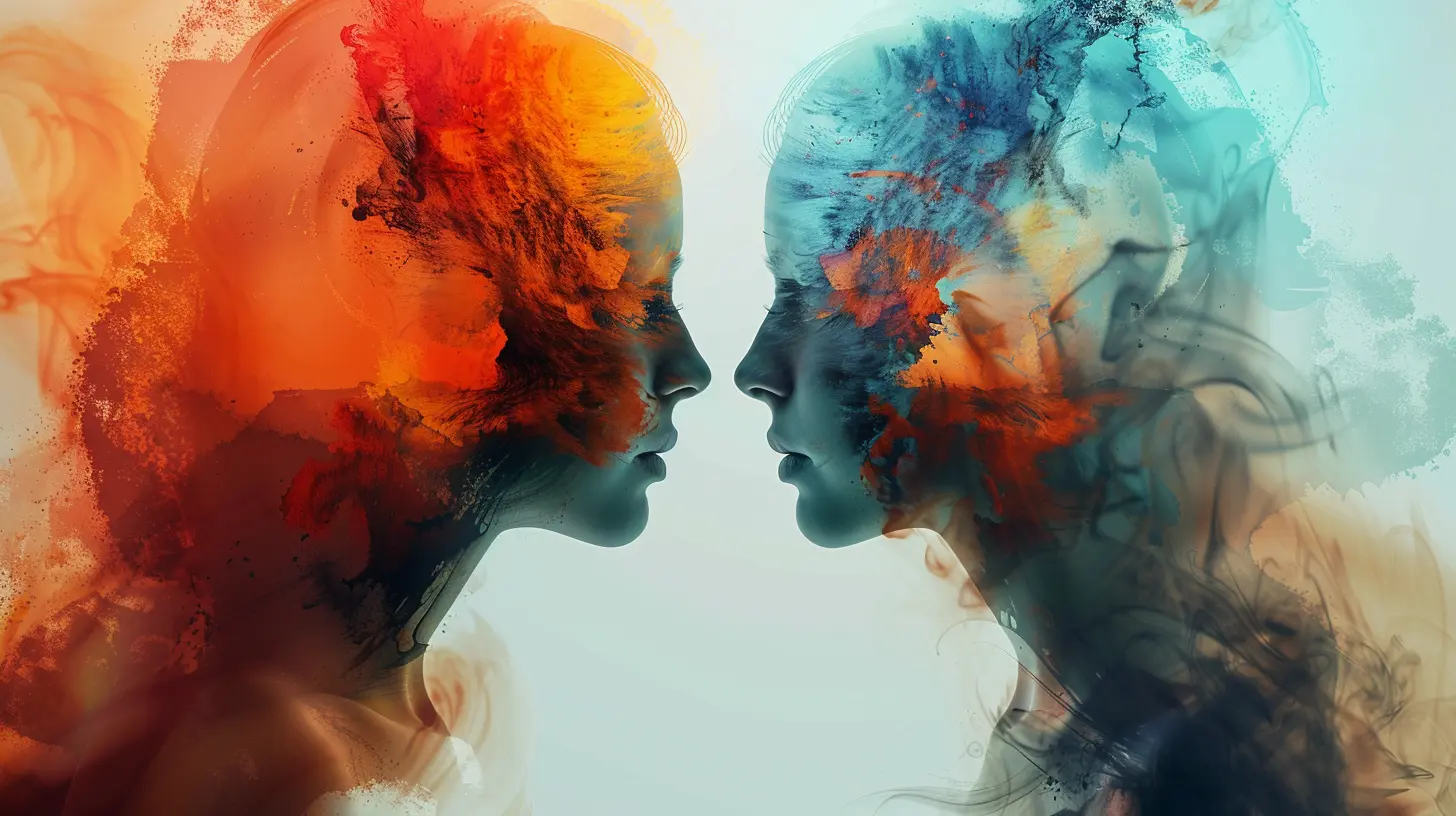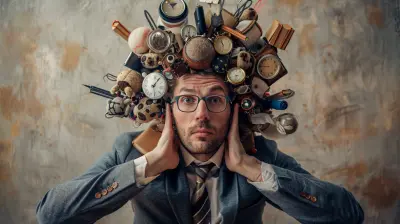The Connection Between Emotional Regulation and Mental Health
27 June 2025
Alright, let's talk about the one thing you can't just Google your way out of: feelings. Yes, those wild, unpredictable, and sometimes downright inconvenient little visitors. Love them or hate them (mostly hate them at 2 a.m.), your emotions are here to stay. And how you deal with them—aka emotional regulation—plays a massive role in your overall mental health.
So buckle up, because we’re about to dive into how mastering your inner drama queen can actually help you live a happier, more mentally stable life. Spoiler alert: screaming into a pillow only works up to a point.
What Is Emotional Regulation, Anyway?
Let’s break it down without sounding like a psychology textbook (you’re welcome). Emotional regulation is basically your brain’s way of handling what you feel, when you feel it, and how you express it—like the traffic cop of your emotional highway.When everything’s working fine, it’s like hitting every green light on your commute. When it’s not? Well… welcome to emotional road rage—complete with tears at work over a passive-aggressive email or ghosting your group chat because someone forgot your birthday.
Think of It Like Emotional Plumbing
Seriously. Emotional regulation is the difference between a well-maintained pipe system and a backed-up toilet. Handle things as they come? Smooth sailing. Let everything build up? Pipe burst. Emotional flood. Chaos.
Why Emotional Regulation Matters More Than You Think
You might be thinking, “I’m not five years old. I know how to control myself.” Okay, buddy. But let’s be real—just because you don’t throw a full-blown tantrum in the grocery store over expired oat milk doesn’t mean you’re emotionally regulated.Emotional Regulation Impacts EVERYTHING
- Your Relationships: Ever snapped at your partner over one too many unanswered texts? Yeah, that’s poor regulation at work.- Your Job: That time you rage-deleted a work email instead of dealing with it? Hello, stress.
- Your Health: Chronic stress and poor emotional control have been linked to everything from heart disease to insomnia. Awesome, right?
Mentally healthy people aren’t emotionless robots—they’ve just learned how to manage their emotional WiFi so it doesn’t drop out every time life gets rough.
The Science Behind It (Don't Worry, No Lab Coat Needed)
Let’s nerd out for a second.Your brain has a few key players in the emotional regulation game:
- Amygdala: The drama queen. Always ready to scream “fire!” even when it’s just someone cutting in line at Starbucks.
- Prefrontal Cortex: The grown-up. The one trying to calm the amygdala down, usually with deep breathing and logic.
- Hippocampus: Kind of like your emotional librarian. It remembers what worked and what didn’t in past situations.
When these areas work together like a smooth boy band, you can handle life’s curveballs. When they’re out of sync? Cue the emotional chaos.
Emotional Regulation Gone Rogue: What It Looks Like
Not sure if your emotional regulation’s on life support? Here are some signs that your inner thermostat might be broken:1. You React Like a Netflix Drama
If your first response to disappointment is to spiral into existential dread... yeah, that’s not ideal.2. You Bottle Things Up
Sure, you look calm, but inside? You’re basically a shaken soda can waiting to explode.3. You Numb Out
Avoiding emotions by binge-watching shows, drinking wine like it’s a sport, or doom-scrolling TikTok? Check and check.4. Your Relationships Are a Rollercoaster
If your friendships or romantic life resemble the plot of a daytime soap opera, emotional regulation may be the missing ingredient.How Emotional Regulation Supports Mental Health (Spoiler: It's Kind of a Big Deal)
Okay, here’s where it gets juicy. Emotional regulation isn't just about avoiding crying at commercials; it’s the secret sauce for long-term mental wellness.1. Reduces Anxiety and Depression
When you manage emotions effectively, you’re less likely to get stuck in a negative thought loop. No more letting that one mean comment dwell in your head rent-free for a week.2. Improves Resilience
Life throws punches. Emotionally regulated people? They don’t just survive—they duck, weave, and counterattack with grace.3. Fewer Emotional Overloads
Less crying over spilled milk. Literally and figuratively. You learn to take things in stride instead of spiraling.4. Enhances Self-Awareness
The more you understand your emotions, the better you understand yourself. And no, that doesn’t mean becoming a self-help junkie—it just means knowing when to chill and when to call your therapist.So, How Do You Get Better at This Emotional Jedi Stuff?
Glad you asked, grasshopper. Emotional regulation isn’t some magical trait passed down by emotionally intelligent unicorns. It’s a skill. And like any skill, you can learn it. (Yes, even you.)1. Name It to Tame It
Start by identifying what you’re feeling. Seems simple, but “I feel bad” doesn’t count. Try things like: anxious, frustrated, joyful, bitter, excited, etc. Be specific. Emotions aren’t Pokémon—you don’t have to catch ’em all, but you should at least know what they are.2. Practice Mindfulness (Yes, Really)
Before you skip ahead—hear me out. Mindfulness doesn’t mean you have to live in a yurt and eat kale. It just means paying attention to what’s happening now without spiraling into the past or future. Even three minutes a day can work wonders.3. Challenge Your Inner Drama Narrator
Our brains love worst-case scenarios. “My friend didn’t text back. Clearly, they hate me.” Or, “I messed up that presentation. Guess I’ll be unemployed forever.” Instead, try: What’s the actual evidence here?4. Use Healthy Outlets
Journaling, talking to a friend, dancing like no one’s watching—whatever helps you channel the feels in a constructive way. Just skip the passive-aggressive Instagram stories.5. Move Your Body
No, you don't have to run a marathon. But a walk, a stretch, even stress-cleaning your kitchen? All great ways to regulate your nervous system.The Social Media Effect: Emotional Dysregulation on Display
Let’s not ignore the elephant in the chatroom. Social media is emotional regulation’s evil twin. It eggs you on, rewards impulsivity, and encourages comparing your deeply flawed behind-the-scenes to someone else’s highlight reel.Ever posted something dramatic on a story and deleted it five minutes later? Yeah, that’s called an emotional regulation fail, and we’ve all been there.
Tip: Before reacting online, follow the 3-second rule.
Pause. Think. Then decide if it's worth that cringey regret later.When to Call in Reinforcements (aka Therapy Is Not Just for "Broken" People)
If emotional regulation feels about as doable as climbing Mount Everest barefoot, that’s your sign. There’s no shame in needing help—mental health professionals are like personal trainers for your brain.Cognitive Behavioral Therapy (CBT), Dialectical Behavior Therapy (DBT), and even simple talk therapy can be game changers in helping you build better emotional control. Think of therapy as tuning up your emotional engine instead of waiting until it explodes on the highway.
Final Thoughts: Emotions Aren’t the Enemy (Your Inner Drama Is)
Here’s the kicker. Emotions themselves? Totally normal. Necessary, even. They make life rich and beautiful and, let’s be honest, occasionally messy.But when we don’t learn how to regulate them, they start driving the car—and let’s just say your inner rage monster isn’t the best navigator.
The connection between emotional regulation and mental health isn’t just real—it’s the foundation for how you feel, live, love, and function. So next time your emotions try to hijack your brain, remember: you don’t have to let them take the wheel.
TL;DR (Because Let’s Face It, Your Brain's Probably Tired)
- Emotional regulation = managing your feelings like an adult (most of the time).- Good emotional control = better mental health. Period.
- It affects your relationships, resilience, physical health, and more.
- You can actually learn it. Yes, really.
- Sometimes, you need backup. Therapy is cool. Trust me.
Now go forth and regulate, my emotionally intelligent friend.
all images in this post were generated using AI tools
Category:
Emotional RegulationAuthor:

Janet Conrad
Discussion
rate this article
2 comments
Callista McCarthy
This article beautifully highlights the vital link between emotional regulation and mental health. Understanding our emotions empowers us to manage them better, ultimately fostering resilience and well-being. Keep exploring this essential journey!
December 26, 2025 at 4:22 AM
Emmeline Dorsey
Emotional regulation isn’t optional; it’s essential. Mastering it transforms mental health from a struggle into a thriving journey.
July 16, 2025 at 4:16 AM

Janet Conrad
Thank you for your thoughtful comment! I wholeheartedly agree—emotional regulation is crucial for fostering resilience and enhancing overall mental well-being.


